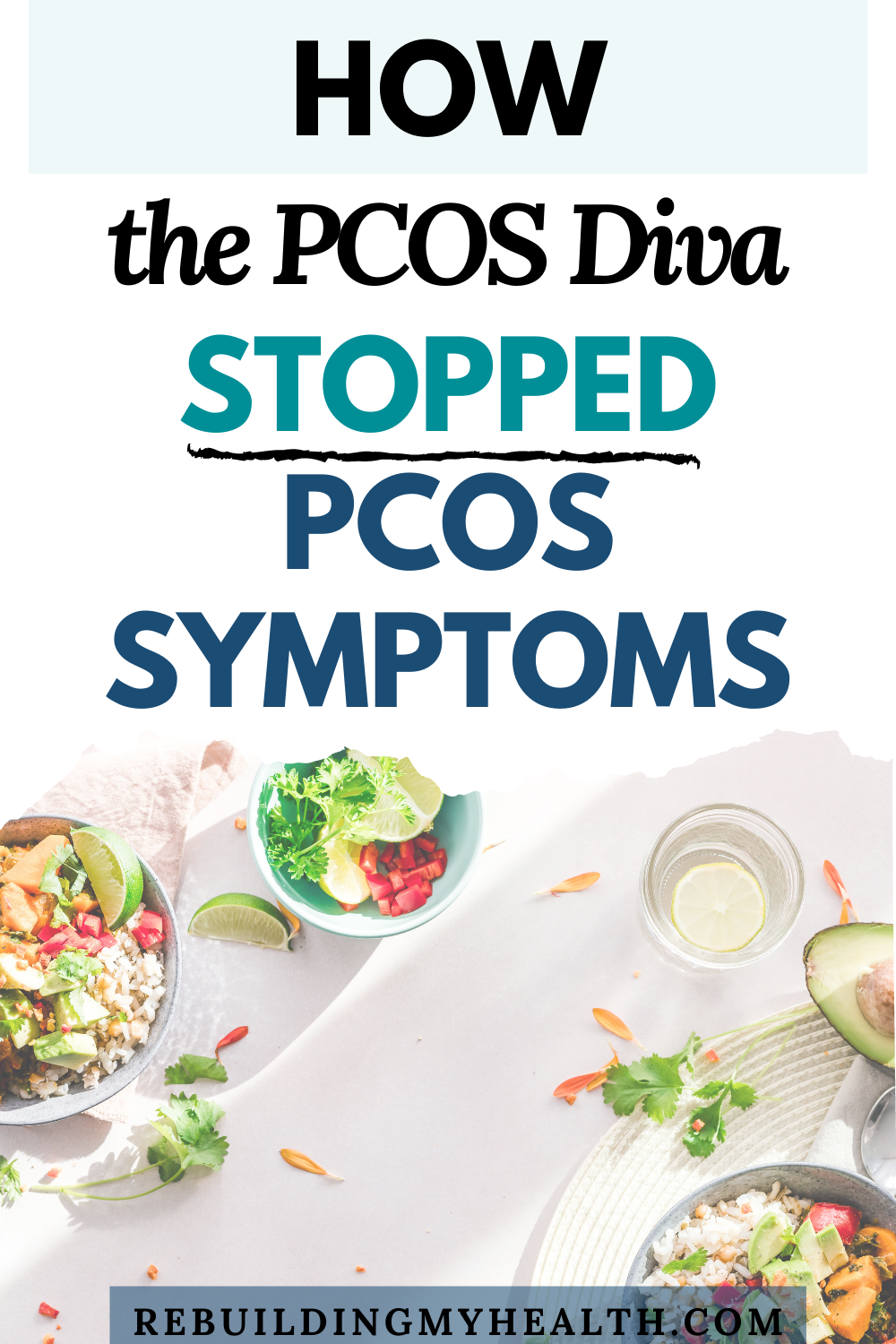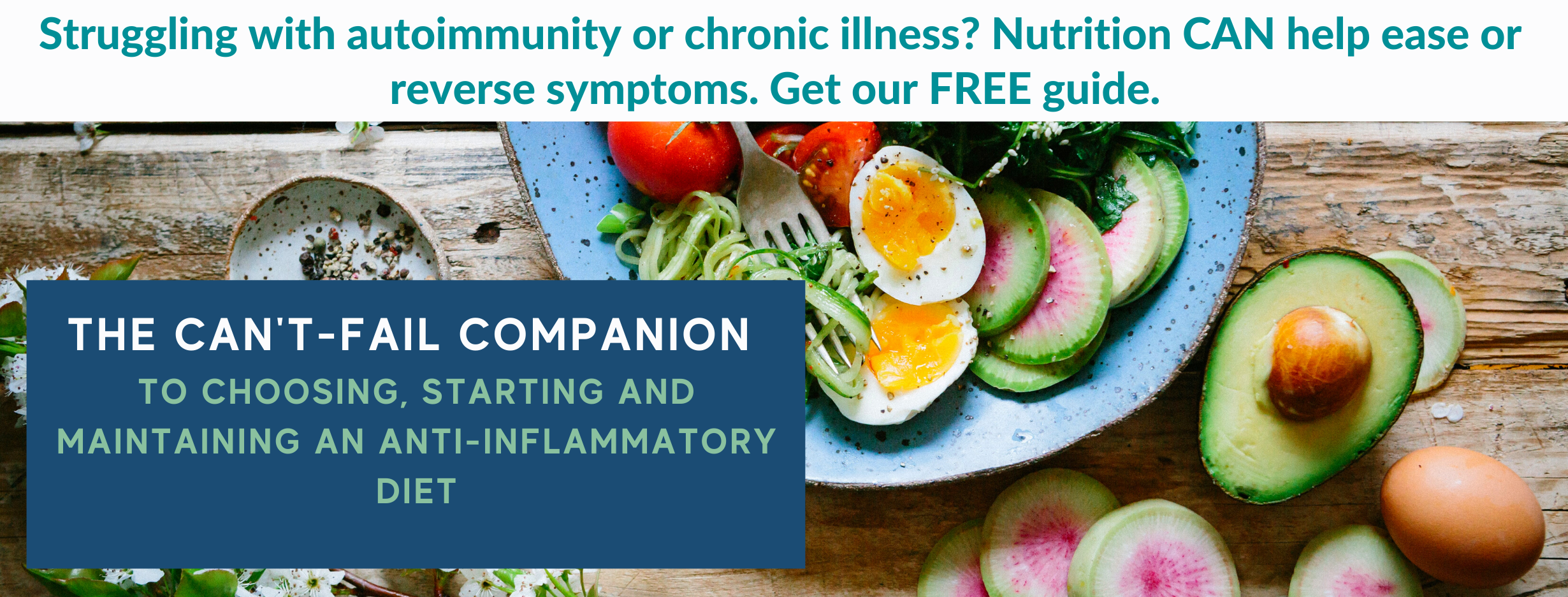How the PCOS Diva Stopped Her Symptoms Naturally
“It was a holistic approach to healing that really helped me. It wasn’t about counting carbohydrates or calories. It was really much more than that. It was balancing my emotional health, my spiritual health, my physical health, managing my self-care, my mindset. All of those pieces kind of came into play.”
– Amy Medling
A type-A personality, Amy Medling pushed herself as a teenager, excelling in school and sports.
And she did it all with underlying health frustrations invisible to most: irregular menstrual cycles, hair loss, acne, mood swings and depression.
“Doctors sort of chalked it up to just the stress of being in high school and being a good student,” she says. “Especially with the hair loss. I remember my mother taking me to lots of different doctors and I was never given any type of diagnosis.”
In college, her periods were often absent, leading a doctor to prescribe birth control pills. The same doctor advised her, at age 17, that she would likely have trouble getting pregnant someday.
“As this young woman, that’s a very scary thing to be told,” she recalls.
In her 20s, Amy began noticing facial hair (hirsutism). For that, an endocrinologist gave her a cream and a prescription for Spironolactone, a drug commonly prescribed to lower androgens, or hormones such as testosterone that can trigger unwanted hair.
Despite the drugs, Amy’s symptoms continued.
Finally, a PCOS Diagnosis
Years later, when Amy and her husband were ready to start a family, the long-ago prediction from that physician unfortunately came true. It was indeed difficult to conceive.
Using Clomid, a drug to stimulate ovulation, Amy fortunately got pregnant and gave birth to a son.
A few years later, when it was time to try for their second child, she experienced secondary infertility. This time, she turned to natural family planning to track her cycle, and discovered an interesting pattern.
“My cycle looked very similar to a PCOS (polycystic ovary syndrome) type cycle,” she says. “That is what made me reach out then to a reproductive endocrinologist. And I finally got an official PCOS diagnosis when I was like 31.”
To conceive her second child, Amy used Clomid plus hormones, fortunately averting in vitro. Again, Amy gave birth to a son.
‘Too Young to Feel This Old’
Following the birth of her second son, Amy wasn’t bouncing back. Doctors again wanted to put her on birth control and the diabetic drug Metformin, an insulin sensitizer. Studies have found insulin resistance is often present in women with PCOS.
Amy tried both medications for a time. While they did reduce facial hair and improve (scalp) hair regrowth, the side effects became too much, including gastrointestinal distress, anxiety and mood swings. She also worried about vitamin B depletion related to Metformin.
“I just couldn’t go on using these prescriptions,” she says. “They were making me feel more sick and miserable, and at this point I’m like 33 feeling way too young to feel so old, and sick and tired of feeling sick and tired. I just couldn’t go on living this way.”
Amy points out that, while drugs can help some women, they can be Band-Aids that mask the real problems, including inflammation, insulin resistance, hormonal imbalances and gut issues.
The Birth of the PCOS Diva
Amy took it upon herself to begin researching PCOS, spending countless hours online. What she found led her to make multiple lifestyle changes.
“I realized that my diet was probably adding to my PCOS issues in terms of raising my blood sugar and causing more insulin issues,” she says.
The diet that she found optimally supports PCOS is high in vegetables and low-glycemic fruits like berries, cherries and apples, plus nuts, seeds, and healthy fats such as avocado, olive oil and grass-fed butter or ghee. Going gluten-free can also make a difference for many.
However, she said the amount of carbs may vary for women. Some need more than others for their adrenals and hormones to be balanced.
Amy added other foods and supplements specifically to improve blood sugar regulation such as cinnamon, chromium, and diluted apple cider vinegar.
She became exceedingly dedicated to her diet – because it was working. One evening, out for dinner with her husband, she insisted to the waiter that her vegetables be cooked in butter, not vegetable oils (to avoid inflammatory omega-6) and requested a sweet potato instead of a higher-glycemic white potato.
“When the waitress left the table, in a nice way, my husband said, ‘Gosh, when have you become such a diva?'”
At first, Amy was a little offended by her husband’s comment. But it was also an important a-ha moment for her.
“This is what I need to do in order to feel better and to be able to get through my day,” she says.

Self-Care for PCOS
Beyond diet, Amy began exercising and prioritizing sleep, a tough feat with two small boys.
“It really changed the dynamic of my family because I was very much used to putting everybody and everyone first,” she says. “I was always last on the list.”
She soon learned her efforts mattered. At her next routine endocrinology appointment, bloodwork showed that her cholesterol, A1C (an insulin indicator), glucose and thyroid numbers had all improved.
Amy detailed her efforts for the doctor, who then asked for links to the most relevant studies so she could email them to other patients.
It was a watershed moment; Amy wasn’t just helping herself, but others too.
A Natural Pregnancy with PCOS
In 2008, Amy was delighted to learn that she had become pregnant with her third child – naturally.
“This was a result of changing my lifestyle,” she says. “They said I wouldn’t get pregnant without fertility treatment.”
This time, Amy had a baby girl. She knew her daughter would be at a higher risk for PCOS and was determined to help her avoid the same rocky path.
For her daughter, and many other women, Amy began blogging about the PCOS approaches that worked for her. And she knew just the name for her blog: PCOS Diva.
As she gained a following, other women asked for help, leading her to go back to school to become a holistic health coach.
“It was a holistic approach to healing that really helped me,” she says. “It wasn’t about counting carbohydrates or calories. It was really much more than that. It was balancing my emotional health, my spiritual health, my physical health, managing my self-care, my mindset. All of those pieces kind of came into play.”
To keep her stress down, she turns to mind- and body-calming activities such as quiet prayer, meditation and a practice of gratitude.
Helping Thousands of Women
Over the past two decades, Amy has learned volumes about how to ease the symptoms of PCOS. She’s passed that on to the more than 10,000 women who have gone through her programs.
She’s also reached countless others through her book, Healing PCOS: 21-Day Plan for Reclaiming Your Health and Life with Polycystic Ovary Syndrome and podcast.
As with Amy, it can take years for women to receive a PCOS diagnosis or the help they need. She says there are various phenotypes for PCOS but there are generally three criteria for diagnosing it.
- Elevated androgens such as testosterone and DHEA.
- Irregular ovulatory cycles
- Polycystic ovaries as shown on a vaginal ultrasound
A diagnosis requires a woman to have two out of three of the criteria.
Out of all the resources that Amy provides women, hope is probably the greatest gift she can pass on. What women believe about their PCOS, and what doctors tell them, isn’t necessarily true.
“The large majority of women, although they might need some intervention, can get pregnant,” she says. “Especially if they make some really positive lifestyle changes with diet, making sure they’re getting enough exercise and sleep.”
If you liked this story, you might also enjoy: Woman Eliminates Period Problems, Gut Issues and More, Related to Post Birth Control Syndrome.
The information on this site is for educational and inspirational purposes only and is not intended to replace the advice of qualified professionals. Keep in mind that what works for one person may not work for another. Always consult your healthcare practitioners before beginning new approaches or treatments. Some links on Rebuilding My Health may be affiliate links. This means that we may receive a commission - with no additional cost to you - if you make any purchases using those affiliate links. Rebuilding My Health is a participant in the Amazon Services LLC Associates Program. Learn more.


